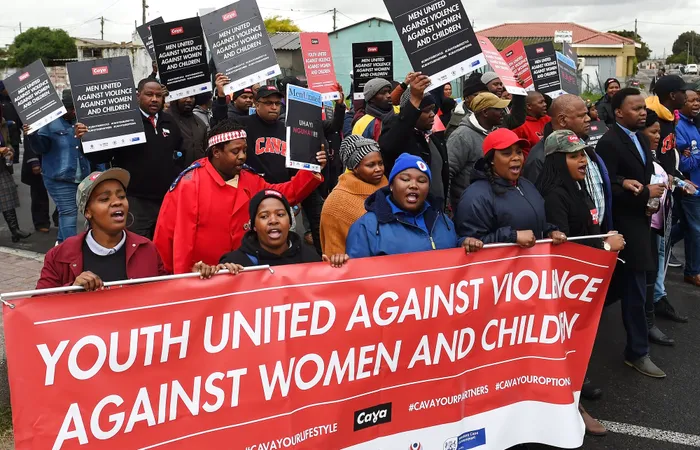16 Days of Activism: Domestic violence is SA women's most frequent trauma

File photo: Phando Jikelo / African News Agency (ANA) File photo: Phando Jikelo / African News Agency (ANA)
CAPE TOWN - Physical abuse at the hands of an intimate partner is the most common form of violence experienced by South African women, the South African Society of Psychiatrists (Sasop) has found.
According to the Sasop findings released on Wednesday, rape at the hands of an intimate partner is also a leading cause of post-traumatic stress disorder (PTSD) for women, with far-reaching impact on virtually all aspects of their lives.
With 16 Days of Activism for No Violence against Women and Children, running until December 10, Sasop has highlighted the long-term effects of the trauma of gender-based and domestic violence on survivors’ mental health and ability to function.
South African women who suffer PTSD as a result of rape or physical assault by their partners often never fully recover, said Professor Ugasvaree Subramaney, Sasop member and academic head of the Department of Psychiatry at Wits University.
“Nightmares, flashbacks, sleep difficulties, outbursts of anger, difficulty concentrating and emotional numbness that characterise PTSD can have a crippling effect on the sufferer’s social functioning, their work and family life, education and physical health, as well as having costs in terms of lost income and medical care, even long after a woman has escaped an abusive situation,” she said.
Subramaney said twice as many women as men will experience PTSD during their lifetimes, even though men have greater exposure to traumatic events.
PTSD sufferers are 80 percent more likely than those without PTSD to develop other mental disorders such as depression, anxiety or substance abuse, and PTSD is also associated with physical illnesses such as heart disease, diabetes, stomach ulcers and hypertension.
Without treatment, the symptoms of PTSD can continue for years, especially where victims have continued exposure to the traumatic situation, such as having to live with the perpetrator or going through a drawn-out court case. They can also develop health issues.
“Almost 75 percent of South Africans have experienced at least one traumatic event in their lifetimes, with violence by an intimate partner, one of the most frequent at a similar level to the likelihood of being the victim of any crime in general.
“This has serious costs and consequences for victims, families and the economy, highlighting the urgency of comprehensive, society-wide action and implementing the emergency action plan on gender-based violence announced by President Cyril Ramaphosa in October,” Subramaney said.
PTSD does not necessarily always follow trauma but can be described as “failure to recover from the acute (initial) response to a traumatic event”, affecting between one and nine percent of the general population, and up to 14 percent of women.
The symptoms of PTSD include re-experiencing the trauma through intrusive and distressing memories, dreams or flashbacks, a sense of hyper-vigilance, outbursts of anger or irritability, sleep difficulties, and physical responses to reminders of the trauma.